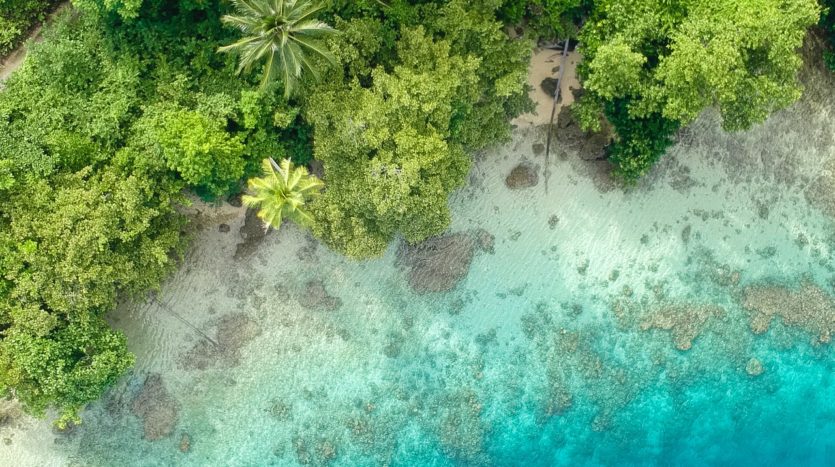If you plan to retire in Costa Rica, you have a few options. The easiest paths are through investment in Costa Rica in forestry, real estate or a business. This post is an excerpt from one of our books and gives an overview of the best ways to retire in Costa Rica.
Residency by investment (“inversionista”)
Option 1: $100,000 in forestry projects
The forestry projects can be lumber, preservation or regeneration of forested areas. You’ll need to secure permits in order for this investment to qualify, the most important of which is from SETENA, the Costa Rican agency in charge of environmental protection.
Option 2: $200,000 in real estate
The real estate investment has to be at the moment you purchase it, not earned through sweat equity, buying a property worth $200,000 at a discount for $150,000 or by making improvements after you own it. The Costa Rican government will want to see USD $200,000 move from your bank account to the seller of the property. Any residential property qualifies—land for future development, house, condo, etc.
You can hold the title to the property however you wish. Choosing to hold title in the name of a corporation or trust will require additional documentation.
There is an insidious practice by some attorneys in Costa Rica to list a lower price on the transfer deed that is recorded with the government than the actual purchase price (to help their seller clients avoid taxes on the true amount).
Make sure you check the purchase price on the deed before it is recorded, especially if you are close to the $200,000 cutoff. Recording the deed for a $210,000 purchase at a $195,000 purchase price would negate your ability to use that purchase to qualify for residency by investment. It’s a nasty situation, but it happens. Trust, but verify.
Option 3: $200,000 in a new or existing business (existing is easiest)
Buying shares in an existing business for at least $200,000 is the easiest way to earn residency this way. It is possible to accomplish the same thing with a new business, but the new business approach is not a good idea for most.
The requirements for a new business investment are stringent because of the potential for abuse. You will need to have a detailed business plan approved by the government. You will also need to convince the appropriate government authorities that you have a legitimate business and the ability to build your business into something bigger and more profitable. This is an especially tall order if you have never built a business before, or never built a business in a foreign country before.
The better option for residency by business investment is to purchase shares in an existing business. The investment can equate to any percentage of the existing business as long as the total investment amount is at least $200,000. There is less scrutiny with this approach than with the new business approach because of verifiable track record and tax history of an existing business.
Keep in mind that you are allowed to own a business in Costa Rica, but you cannot work in the business unless you have a proper work permit. Working in your business without a permit is seen as “taking a job from a local person” and could get you deported if you get caught.
Ownership rights
Foreigners have the same property rights as Costa Rican residents, except with beachfront properties with a concession. More on concessions in a minute.
You can take title to Costa Rican property in your personal name or the name of a corporation. Many people opt for the corporation option for tax and estate planning purposes. It is simple and inexpensive to have a lawyer form a corporation for you in Costa Rica.
There is a central land registry in Costa Rica that will allow you to search the title history to make sure you are buying an unencumbered property. The local real estate lawyers know how to navigate the registry and run a title check for you.
Beachfront properties
All the beachfront property in Costa Rica is divided into two zones and is governed by maritime law—the public area and the restricted area.
The first 50 meters of land from the high-tide mark is property held in the public domain (public area). It is available for anyone to use. The next 150 meters of land are held under concession (restricted area).
You never actually own the land with a concession in the restricted area, although permits can be obtained to allow use of the land. The concession functions like a long-term lease. Part of the lease agreement gives the government the right to seize the land if they need it or want it, which is part of the reason many house hunters get spooked by properties in the restricted area.
There are slightly different property rights for foreigners when it comes to obtaining beachfront concessions. There is an application process at both the local (municipality) and national level.
In order to be able to apply as a foreigner, you must have at least five years of residency in Costa Rica. Foreigners who have not been in the country for at least five years can obtain minority ownership in a beachfront property with concessions if they partner with a qualifying person.
Foreign corporations cannot obtain concessions, and Costa Rican corporations with more than 50% of the ownership held by foreigners cannot obtain concessions.
The concession rights for occupancy are usually for a 20 year term, although they can range anywhere from 5 to 20 years. The rights can be renewed at the end of their term, but there’s no guarantee they will be renewed.
Because of the laws, there’s (almost) no such thing as property in Costa Rica where you own the property all the way to the waterline. There are a few outliers where exceptions have been granted by the government. The exceptions are a few hundred years old, dating to Spanish colonial times. Titled property in the restricted zone can still be privately held if the title pre-dates the adoption of maritime law, or if the title was granted by the Spanish monarchy during colonial times.
I understand many people hear the word “exception” and think that means there’s a chance for them because they are somehow special. Trust me when I say you would be volunteering for endless headaches and disappointment if you are foolish enough to try to be an exception.
Of course, you can ignore this advice if you have unlimited funds and friends in high places in the Costa Rican government.
Working with real estate agents
There are plenty of “agents” running around Costa Rica who have questionable ethics at best. There is no formal licensing required of agents in Costa Rica, nor is there any professional regulation of their behavior.
There are some voluntary associations that reputable real estate agents choose to join (although membership in the associations does not guarantee professional behavior). The National Association of Realtors and the Costa Rican Real Estate Association are a few organizations you may find mentioned by local agents.
Membership is a signal that the agents are serious professionals, but you should check the references and reputation of any agent you are considering to represent you. Google is a good resource to do your research, along with local word-of-mouth recommendations.
There is no MLS (multiple listing service) in Costa Rica. There are some local versions that might be useful for research, but they will almost always contain incomplete and/or inaccurate information. Your best bet is to get comfortable with a local agent who will know about the available properties that fit your criteria.
Transaction process
Once you have found a property you like, the offer process is straightforward. A real estate agent will draft an offer to be presented to a seller and help with the negotiation process.
Once buyer and seller agree on the price and terms, a notary will verify the legitimacy of the transaction and an escrow company will enter the picture. There are many options for escrow companies and your agent and/or lawyer will probably have suggestions for you. The escrow period is usually between 30 and 60 days, and that can be flexible if there’s a good reason to move faster or slower and both sides are okay with it.
A 10% deposit is typical (although the amount is negotiable) and the money should be deposited within two weeks of an accepted offer. It’s best to get the ball rolling on the deposit immediately after an offer is accepted, especially if you will be transferring money from another country. Banking delays are common when it comes to international wire transfers.
You will forfeit the 10% deposit if you change your mind about buying the property after it has been approved by the notary. Your 10% deposit will be returned to you if the seller changes their mind about the sale.
Lawyers are required by law to be involved in real estate transactions in Costa Rica. One lawyer will represent the buyer and one will represent the seller. Most lawyers will also help you form a corporation if you wish to hold the title to the property in a corporation.
The lawyers’ responsibilities include a title search, verifying permits, verifying ownership and overseeing the proper filing of all necessary paperwork with the appropriate governmental entities.
Closing costs are as follows:
- 1.25% plus tax for the notary fee to register the property and coordinate the closing (paid by the buyer)
- 2.4% stamp duty for a property transfer (if taking title in your name or your new corporation’s name), or 1.5% for a corporation share transfer if a corporation holds title to the property and you’re buying the shares of that corporation (usually split between buyer and seller)
- Escrow fees of roughly 0.25% (split between buyer and seller)
The commission in a transaction is almost always paid by the seller, just like in the U.S., Canada and the U.K. There is no “standard” commission and it is always negotiable, but 5-6% is common in most transactions. The commission is split between the buyer’s agent and the seller’s agent.
Capital gains tax is due within one month of the closing date. Residents are exempt from capital gains tax if they spend more than 183 days per year in Costa Rica and the property is not a rental property (because they live there). The calculation for the exact amount of capital gains tax due is a little tricky and the help of an accountant should be enlisted.
Property development and rehabbing
The formal construction permitting process in Costa Rica resembles the process in most other countries. You will need to submit plans, submit an application, pay some fees and wade through the local bureaucracy. This is best approached with local professionals who are familiar with the process, such as general contractors, architects and developers.
The permitting process becomes increasingly difficult the closer you get to the beach. The beaches are protected with several layers of laws and regulations, especially when it comes to construction projects.
The good news here is that once your permit is issued, you don’t have to have your project inspected multiple times at multiple stages by governmental employees to approve the work. Anyone who has engaged in a new development project anywhere in the U.S. will understand what a hassle that can become. Not a problem in Costa Rica!
If you plan to retire in Costa Rica, you can search Costa Rican properties for sale on our website. We add new properties on a regular basis, and we also provide a property finding service if you have specific needs.

